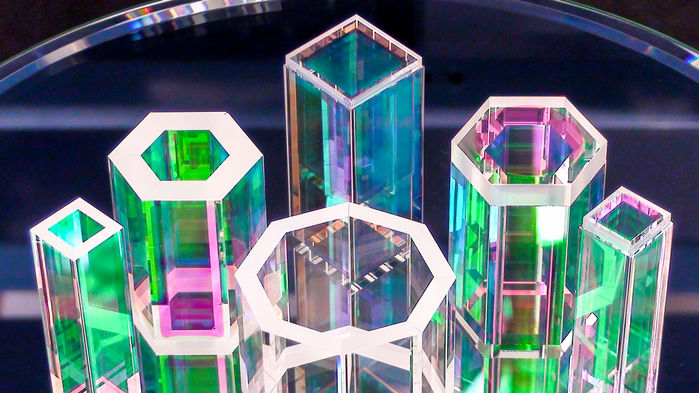
Understanding the fundamentals of glass-like materials should enable students to deduce the structure and properties of a glass from its composition. Building on the materials science fundamentals of the lecture, the glass state is described taking into account solid-state physics and thermodynamic principles. The technological principles of glass production explain the glass state as a function of external process parameters. Finally, the application-specific properties of glasses are derived from the glass composition, process parameters, and glass structure.
The following content is covered in detail:
- History of glass, glass formation, classification of glasses, glass structure, models, structure determination using various methods
- Network and crystallite theory, non-silicate glasses, glass-like carbon and metallic glasses, glass formation regions, reactions during melting, and demixing
- Crystallization, glass-ceramics, density and viscosity: influence of glass composition, measurement methods
Overview of hollow and flat glass production, manufacturing technology, post-processing, quality parameters - Mechanical properties: strength, hardness, thermal shock resistance, elasticity
- Chemical resistance, measurement methods, characterization of the glass surface, water-glass interaction, gases in glass, reboil effects
- Thermochemical properties: thermal expansion, specific heat, surface tension, significance for glass coatings
Thermal conductivity, electronic and ionic conductivity, dielectric properties - Optical properties: reflection, absorption, emission (optical constants), refractive index, dispersion, fluorescence, measurement methods
- Coloration mechanisms in glasses, spectroscopic measurement methods
Optical components, optical fibers, interaction with radiation, nonlinear effects
[Self-registration for the lecture is done using the ID #GLASGL2025_26# ]
- Dozent: Priv.-Doz. Dr.-Ing. habil.: Guido Falk
